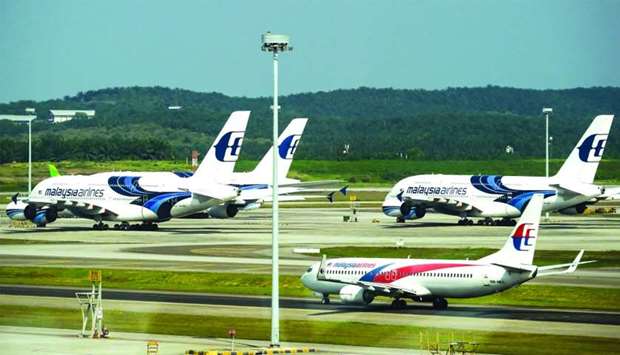Aviation — Beyond the Tarmac
Middle East aviation is set for further liftoff with projected strong economic growth, rising middle class incomes, and increased consumer spending on services in addition to evolving airline business models.
Passenger traffic in the Middle East may increase at 5.1% a year over the two decades, necessitating new airplanes and the need for expanded component logistics and Maintenance, Repair and Operations (MRO) services in the region.
In the Middle East, robust demand is expected in the next 20 years on the back of strong economic growth and evolving airline business models that promise to bring more value to passengers and support the long-term outlook.
The promising outlook, industry experts say, will drive the need to employ a significant number of people to keep those planes flying.
Both the leading aircraft manufacturers — Boeing and Airbus have recently presented a promising outlook for the Middle East’s aviation industry.
Boeing forecasts that the region will need 3,130 new airplanes valued at $725bn through 2038.
This promising outlook means the region will need to employ a significant number of people to keep those planes flying.
In fact, the region will need 68,000 pilots, 69,000 maintenance technicians, and 104,000 cabin crew personnel, points out Bernard J.
Dunn, President of Boeing Middle East, North Africa and Turkey.
In an exclusive article in Gulf Times, Dunn said growing fleets in the region will also drive the need for expanded component logistics and MRO services in the region.
As fleets grow and expand into a broader global market, managing maintenance logistics will become more complex.
In fact, commercial aviation services worldwide will demand $8.8tn over the next 20 years and the Middle East will drive more than 8% of that global demand, representing $790bn, and growing at a projected 4.6% annually, resulting in an abundance of exciting opportunities for students who choose to go down this route.
“Arab youth have a great opportunity to focus on developing the soft skills and STEM education required to excel in the marketplace of tomorrow and be part of building the future of travel.
Air travel remains a vibrant market, one worth considering.
The industry has now recorded nine straight years of steady and above-trend growth,” Dunn noted.
According to Boeing’s latest Commercial Market Outlook (CMO) for the period 2019-2038, wide-body aircraft, already occupying a high share of the fleet in the Middle East, will see the highest number of deliveries of any region (46%) in the next two decades.
However, according to the forecast, wide-body aircraft will slowly and steadily be outnumbered by single-aisles, with narrow-body planes projected to take a 50% share of the fleet composition in the Middle East by 2038.
The largest inter-regional traffic flows for the Middle East are those to Europe and South Asia, and Southeast Asia.
These are projected to grow at 4.3%, 6.4% and 4.8% per year, respectively.
Meanwhile, traffic to China is forecast to see the highest growth rate, reaching six times its current size by 2038 (growth of 9.4% per year). Middle East demand for new passenger aircraft over the next 20 years stands at about 3,240 aircraft, according to Bob Lange, Airbus senior vice-president, business analysis and market forecast.
Some 1,080 of these, or 33 %, are replacement aircraft, with the rest new, growth-driven deliveries.
In terms of new jobs, Airbus estimates the region needs over 50,000 new pilots and nearly 52,000 new technicians over the next 20 years.
"The commercial aviation services market as a whole is valued at some $515bn over the next 20 years in the region, principally in services optimising and maintaining aircraft availability such as maintenance, material management, technicians training and system upgrades, followed by flight operations services including pilot training or Air Traffic Management solutions, and finally passenger services like cabin upgrades, connectivity and ticketing," said Remi Maillard, senior vice-president for Airbus Services.
Since the advent of flying more than a century ago, aviation has indeed become one of the most resilient global industries.
Air travel remains a vibrant market, one worth considering, points out Boeing’s Dunn.
The industry has now recorded nine straight years of steady and above-trend growth, he noted.
Clearly, aviation remains a sustainable pathway to global economic growth providing a wide range of employment opportunities across the region.
Pratap John is Business Editor at Gulf Times


